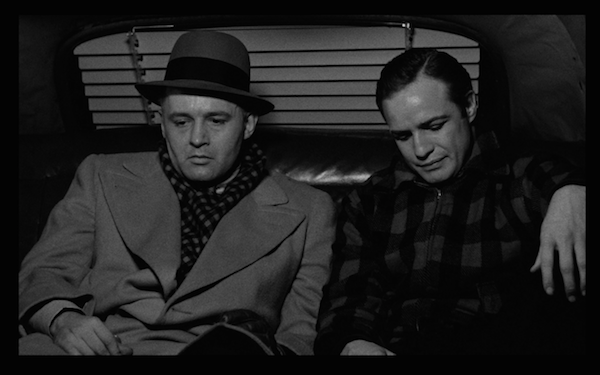
Everything you are about to read below is not science, nor is it backed by exhaustive research, or supported by subject experts. It is simply a personal observation about a certain type of people that make me very sad. Let me explain.
Those of us who have had children tend to encourage them to be positive and ambitious with the refrain: you can be anything you want to be, darling. For young children with their lives still ahead of them, we would like to think the possibilities for them are endless. With determination, hard work and a sprinkling of good fortune they can pursue careers in the arts, business, politics, or medicine to reach the pinnacle of any of these fields. We are optimistic and hopeful on their behalf and wish them greater success than our own attainment. The other wish we nurse is the chance to live long enough to see them realise their highest potentials.
And then “stuff” happens! The Determination is not all there, hard work is not hard enough, and lady luck is otherwise busy elsewhere. This is not counting the limitations bestowed upon them by nature, society or even their own families such as prejudice against colour, creed, gender or background, as well as falling in with the wrong company and picking up all manner of bad habits such as serious drug taking. When added together, these negative factors tend to produce the majority of the population ranging from complete failures to somewhat above average, instead of the very small percentage of high achievers we hoped they would become. Of the population
Many argue that the small percentage of very high achievers is probably more messed up than the mere mortal majority. Most of them are self-made individuals who fought against all odds to reach the top.
None of the above people I have just described makes me sad. The ones who do are the ones that could have been world champions, presidents, virtuoso musicians, Noble laureates and so on. Except, for one small turn of events early on in their lives that veers them away from their trajectory to the top. It could be an accident, a misdemeanor, a falling out with a key person, or any one of many unfortunate little twists of fate. So, instead of reaching the dizzy heights of success, they end up right at the bottom of the heap of society, not even somewhere in the middle.
You may have seen a 1954 film called ‘On The Waterfront’ with Marlon Brando (Terry Malloy) and Rod Steiger who plays his older brother Charley. Terry was a promising boxer destined for greatness in the ring when he is persuaded by his brother Charley to throw away a fight so that a local gang leader can collect on a bet. Things deteriorate thereafter and in one of cinema’s all-time classic scenes the younger brother laments his lost opportunities to his brother in the back of a taxi and utters the famous lines:
“I coulda’ been a contender, I coulda’ been somebody, instead of a bum, which is what I am; let’s face it”
It is such a heartbreaking scene wonderfully acted by Marlon Brando at his very best.
Another fictional example is the ‘Fairytales of New York’ song by the Pogues, with the late Kirsty McColl. This song is endlessly played over the Christmas season and every time I hear it, it brings me close to tears; I don’t seem to get over the pathos of the lyrics. The song is an exchange between two failed would-be Broadway performers who succumb to alcohol and drugs. They clearly were in love at one time and they probably still are. They then have a trade-off of almost comical insults with the verse ending by her saying to him: “Happy Christmas you arse, I pray God it’s our last”. As if this is not bad enough the next verse begins with the saddest of lines imaginable followed by the most brutal put down I have ever heard. He says: “I could have been some one” and she replies: “Well, so could anyone”.
This last exchange sums up the tragedy of unrealized great potential.
From my own experience, I had an outstanding math teacher during my secondary school years who was incredibly charismatic and an absolute master of his subject. Older students spoke of his legendary mathematical abilities and eccentric teaching style. A story about him was doing the rounds about how he ran into trouble at university because he challenged one of his math professors regarding parallel lines never meeting. It was said that he proved that they did and for his troubles, his indignant professor failed him that year, thus losing out on a good degree he clearly deserved.
I hero-worshipped that teacher and uncharacteristically for me, I put in extra efforts for his classes in order to ingratiate myself with him. He liked me and that made me happy. One day, in my final secondary year I plucked the courage during class and asked him to confirm or deny the parallel lines story. For the first time in 3 years, the entire class saw him smile and we all gasped at the spectacle of this ultra serious and complex person letting his mask slip like that. If the experience ended there, it would have been enough of an anecdote but he went further and confirmed that something like this had happened in his university years. Seizing my opportunity, I asked him to explain how he proved that parallel lines met and for the next 10 minutes, he held the entire class enthralled with scribbles and numbers all over the blackboard and with a flourish, he drew two lines meeting at infinity.
None of us were mathematically knowledgeable enough to follow his argument but, we loved every second of his monologue where he was in his own zone, full of passion and youthful enthusiasm that we had not experienced in our previous three years under his tutelage.
I can’t be certain of this however, I truly believe that here was a person destined for great things and somehow, a small event seemed to have dramatically altered this trajectory and sent him on an average teaching post in an average secondary school, in an average town in Palestine. This truly makes me very sad.
Happy 2017.
Mufid Sukkar


